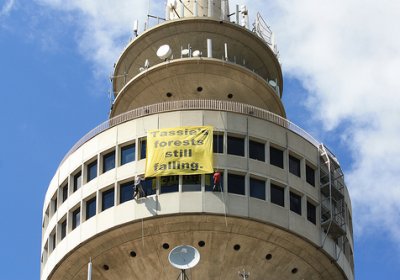Former Greens leader Bob Brown and Hobart nurse Jessica Hoyt began a landmark High Court challenge to Tasmania's draconian anti-protest laws on May 2. The 2014 legislation allows police to stop protests before they even begin on business premises and access areas.
The two were arrested for peaceably protesting against the logging of the Lapoinya State Forest near Burnie on Tasmania’s north-west coast in January last year. Police dropped the charges against Brown and Hoyt after they began their High Court challenge.











